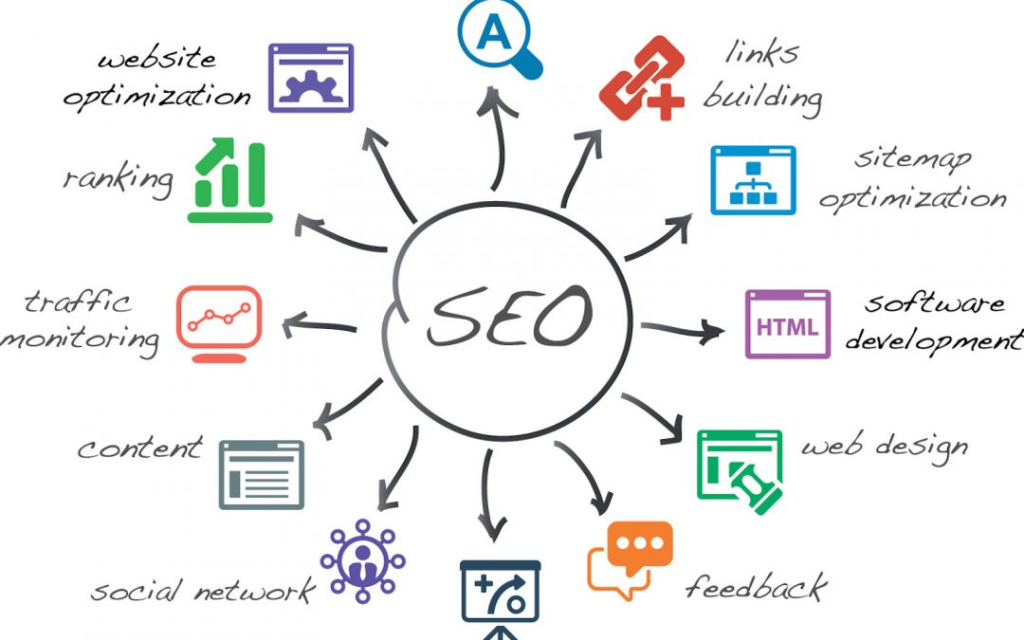How to optimize a WordPress website for search engines (SEO)?

Are you struggling to get your WordPress website ranked on the first page of search engines? If yes, you’re not alone. SEO can be a daunting task, but it’s crucial for the success of your website. In this article, we’ll cover everything you need to know to optimize your WordPress website for search engines.
Why Is SEO Important?
Before we dive into the details of optimizing your WordPress website, let’s first understand why SEO is important. SEO is the process of improving the visibility and ranking of your website in search engine results pages (SERPs). When your website appears on the first page of search results, it’s more likely to be clicked on by users looking for your products or services. This leads to increased traffic, leads, and sales for your business.
Step 1: Conduct Keyword Research
The first step in optimizing your WordPress website for SEO is to conduct keyword research. Keyword research involves identifying the keywords and phrases that your target audience is searching for in search engines. You can use tools like Google Keyword Planner, SEMrush, Ahrefs, or Moz Keyword Explorer to find relevant keywords.
Step 2: Optimize Your Website’s Content
Once you have identified relevant keywords, it’s time to optimize your website’s content. Your website’s content should be high-quality, engaging, and relevant to your target audience. Here are some tips to optimize your website’s content:
- Use your target keywords in your website’s title, meta description, and throughout your content.
- Write longer blog posts (at least 1,500 words) that cover your target keywords in depth.
- Use subheadings (H2, H3, H4) to break up your content and make it easier to read.
- Include images and videos to make your content more engaging.
- Use internal linking to link to other relevant pages on your website.
Step 3: Optimize Your Website’s Technical SEO
In addition to optimizing your website’s content, you also need to optimize its technical SEO. Here are some technical SEO factors to consider:
- Use a mobile-responsive WordPress theme to ensure your website is mobile-friendly.
- Optimize your website’s loading speed by compressing images, using a caching plugin, and minimizing HTTP requests.
- Use SSL encryption to secure your website and improve its search engine ranking.
- Ensure your website’s URL structure is SEO-friendly (e.g. use descriptive URLs with your target keywords).
- Use structured data markup to provide additional information to search engines about your website’s content.
Step 4: Build High-Quality Backlinks
Backlinks are an important factor in SEO. Backlinks are links from other websites to your website. The more high-quality backlinks your website has, the higher it will rank in search engine results. Here are some tips to build high-quality backlinks:
- Create high-quality content that other websites will want to link to.
- Reach out to other websites in your niche and ask them to link to your content.
- Use guest blogging to write for other websites and include a link back to your website in your author bio.
Step 5: Monitor Your Website’s Performance
Finally, it’s important to monitor your website’s performance to see how your SEO efforts are paying off. Use tools like Google Analytics and Google Search Console to track your website’s traffic, ranking, and other performance metrics. This will help you identify areas where you need to improve and make adjustments to your SEO strategy accordingly.
In conclusion, optimizing your WordPress website for search engines is crucial for its success. By following the steps outlined in this article, you can improve your website’s visibility, ranking, and traffic. Remember to conduct keyword research, optimize your website’s content and technical SEO, build high-quality backlinks, and monitor your website’s performance regularly. Good luck!